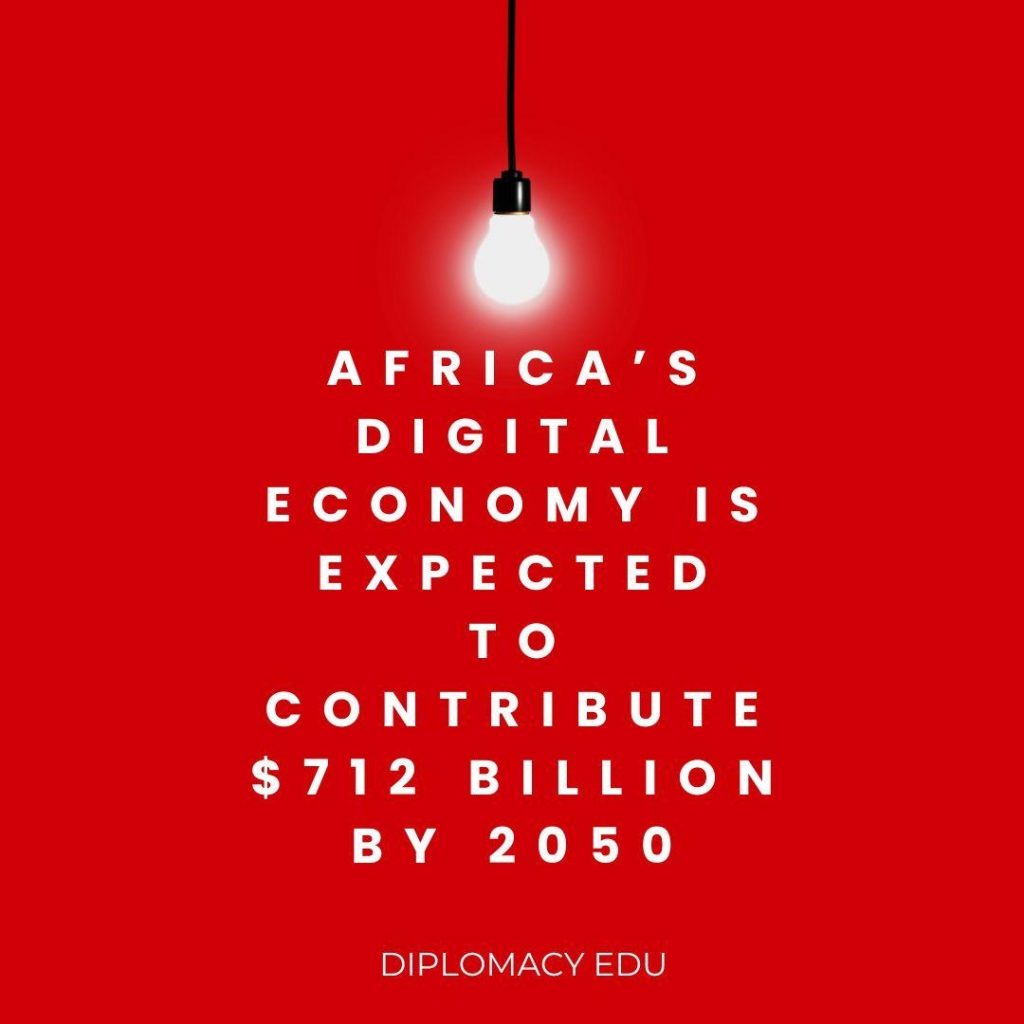
According to the African Development Bank, the continent’s digital economy is projected to hit $180 billion in 2025.
Lagos is home to Andela and Paystack, two companies that have attracted international recognition.
While Nairobi’s “Silicon Savannah” has produced many innovative startups backed by major investors.
Even large corporations like Microsoft and Google are establishing tech centers across Africa.
This expansive trend pinpoints an increasing demand for skilled professionals.
And has thrown the doors wide open for African talent to work from anywhere.

Career Stability in a Fast-Growing Industry.
Tech roles are resilient to economic downturns.
Companies will always require cybersecurity, cloud infrastructure and software solutions.
And with automation gradually replacing low-skilled jobs, tech skills provide a buffer against unemployment.
Initiatives like TalentMakers make it easier to play in the field.
The foundation offers top-tier human capacity developmental programs to help young Africans and early-career professionals seamlessly transition into tech roles.
And help Africa’s young population build successful careers in their home countries, without having to relocate abroad.
The tech world is packed with opportunities.
But…figuring where to start can be overwhelming.
Here are 5 of the most in-demand skills in the tech industry.
1. Software Development
This covers everything from web and mobile app development to backend systems.
According to a 2023 Stack Overflow survey, Javascript remains the most popular programming language, followed by Python and Java.
Companies need developers to build scalable applications, automate processes and create seamless user experiences.
Mobile development for Android and iOS has also surged with an explosion of smartphone users worldwide.
2. Data Science & Machine Learninge Learning
Businesses rely on insights to make decisions, predict trends and automate tasks.
While data scientists analyze large datasets to extract patterns, machine learning engineers build models that learn from data.
Python, R and SQL are essential skills in this field with finance and healthcare industries offering the most opportunities.
If you enjoy numbers, pattern recognition and problem solving, this is a great fit.
3. Cybersecurity
These professionals work on network security, ethical hacking, penetration testing and compliance.
According to Cybersecurity Ventures, global cybercrime damages are expected to reach $10.5 trillion annually in 2025.
Certifications like CEH (Certified Ethical Hacker) and CISSP (Certified Information Systems Security Professional) gives you an edge.
Cybersecurity expert, Confidence Staveley emphasizes this demand. “Africa’s digital transformation depends on strong security. Skilled professionals are needed more than ever.”
4. Cloud Computing and DevOpsnd DevOps
Companies use platforms like AWS, Azure and Google Cloud for storage, computing and networking.
DevOps focuses on streamlining its development and operations. This ensures skills like containerization and automation are in high demand.
Due to this development, a LinkedIn Emerging Jobs Report asserts that cloud computing opportunities see a 30% jump annually.
5. UI/UX Design
User experience makes apps and software easy to use.
UI designers focus on the visual aspects of a product. While UX professionals prioritize its functionality and user experience.
Proficiency in tools like Figma and Adobe XD is essential for both roles.
Good design isn’t just about aesthetics—it directly impacts user retention. According to a Forrester study a well-designed interface can increase web conversion rates by up to 200%.

Tips for Picking the Right Career for You
- Before committing, take time to assess your strengths and interests to determine the best learning path for you.
- Explore various online learning platforms like Coursera, Udemy, and YouTube.
- Seek human capital developmental programs such as those offered by Mastercard Foundation Scholars Program, Google Africa Developer Scholarship, and TalentMakers, to find the right fit and support for your goals.
- Evaluate job market demand. Check job postings and industry reports to identify roles with long term stability and growth.
- Consider salary potential. Research average salaries and potential paths for financial stability.
- Gain hands-on experience from internships or personal projects. Employers value proactive solution skills over theoretical knowledge.
- Specialization Vs Generalization. Instead of being a “jack of all trades” focus on a niche. According to Andela’s talent report, specialized skills lead to faster career growth.
- Network with industry professionals. Connecting with professionals through LinkedIn, conferences or local meetups for mentorship and job opportunities.
- Keep learning. Continuous learning is crucial in tech. Stay updated with new lingo and tools to remain competitive.
Bootcamps Vs Self-Learning
Tech bootcamps offer a structured and intensive learning experience, condensing months of study into a focused period.
However, self-learning provides greater flexibility and allows learners to progress at their own pace.
To be effective, consider using a blended approach of bootcamps for foundation structure and self-learning for a deeper dive into specific niches.
Community Learning: Local Meetups, Hackathons and Tech Hubs
Being part of a tech community accelerates your learning.
Cities like Lagos, Nairobi and Johannesburg have active developer communities, meetups, hackathons and networking events.
Virtually, you can join platforms like GDG (Google Developer Groups), Facebook Developer Circles and TalentMakers to connect with mentors and peers.
Importance of Practical Projects and Hands-On Experience
Many tech job applicants struggle because they fall short of demonstrating their practical skills.
NOTE: Employers prioritize candidates that solve problems.
So build a strong portfolio of projects.
It sets you apart.
If you are an early-career professional, build a portfolio from internships, freelancing and personal projects.
Developers can showcase projects on GitHub,
UI/UX designers should have a Dribble or Behance profile.
And those in the cybersecurity field can include bug bounty reports with their cold pitches.

Do You Need a Degree in Tech to Succeed?
A formal degree helps in roles requiring deep theoretical knowledge.
But for projects like software development, cloud computing and UI/UX, skills matter more than academic credentials.
Many self-taught developers never earned traditional computer science degrees. Instead they proved their expertise through projects, internships and certifications.
Best Industry Certifications
- AWS Certified Solutions Architect (for cloud computing roles)
- Google Associate Cloud Engineer (for cloud and DevOps jobs)
- CompTIA Security+ (for cybersecurity beginners)
- Cisco Certified Network Associate (for networking professionals)
- Microsoft Certified Azure Fundamentals (for Microsoft cloud environments)
- Certified Ethical Hacker (for penetration testing and cybersecurity)
- Project Management Professional ( essential for IT project managers)
- Certified Kubernetes Administrator (DevOps)
- Google Professional Data Engineer (covers data processing, storage and analytics)
- AWS Certified Machine Learning (focuses on A.I. and machine learning models)
Final Thoughts
Tech is creating incredible opportunities for Africans to earn salaries comparable to international standards.
Most times 5-10 times greater than what’s available locally.
You don’t need a degree to land a tech job.
All you need is a learning path, a strong portfolio and the right certifications.
Breaking into global tech is possible—even with limited resources.
But memorizing theory won’t get you hired.
Employers want proof that you are equipped to solve real-world problems.
About TalentMakers Foundation
TalentMakers Foundation is a non-profit organization dedicated to empowering young Africans with in-demand tech skills and global career opportunities.
Our mission is to equip the next generation of African tech leaders with the knowledge, skills, and opportunities they need to excel in artificial intelligence, data science, cybersecurity, and other emerging technologies—empowering them to drive innovation, economic growth, and social impact across the continent and beyond.
Apply for our human capacity developmental programs, become a mentor or support our initiatives today!


